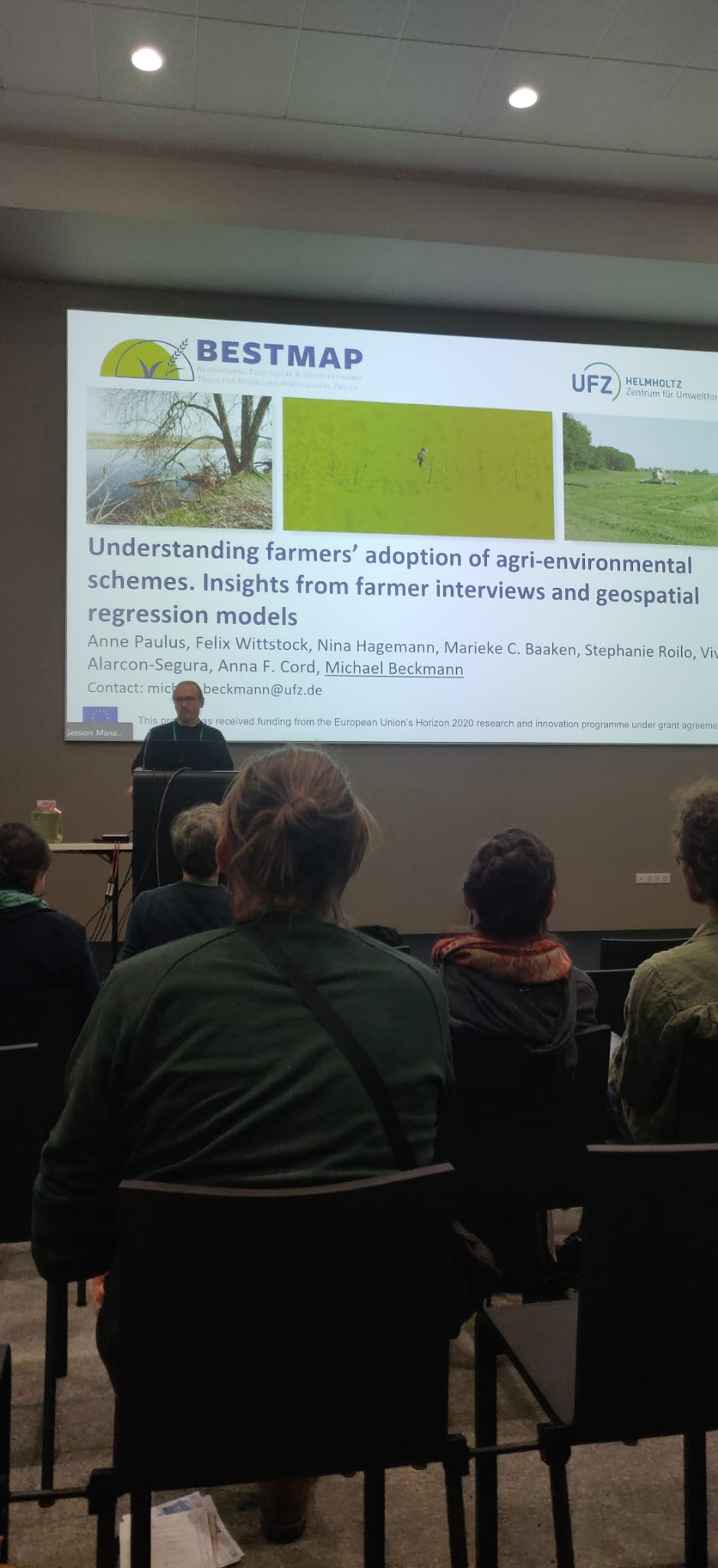Behavioural, Ecological and Socio-economic
Tools for Modelling Agricultural Policy
BESTMAP participates at the SFE² GfÖ EEF joint meeting
Between 21 and 25 of November 2022 a joint meeting titled "Ecology and Evolution: New perspectives and societal challenges" was held in Metz, France, where BESTMAP’s partner Dr. Michael Beckmann of the Helmholtz Centre for Environmental Research (UFZ) participated. The event was organised by the The Interdisciplinary Laboratory for Continental Environments (LIEC), University of Lorraine, CNRS and other labs in northeastern France working in the fields of ecology and evolution.
 Ecologists and evolutionists have been raising awareness towards a number of serious ecological problems during the past century, including climate change, biodiversity loss, and environmental pollution. As a result, experts from all across the world have teamed up to not only detect and explain these events, but also to create tools that could potentially help to resolve these significant environmental problems. But there are still a lot of unanswered concerns about current problems, new viewpoints, and perhaps innovative answers that need to be explored.
Ecologists and evolutionists have been raising awareness towards a number of serious ecological problems during the past century, including climate change, biodiversity loss, and environmental pollution. As a result, experts from all across the world have teamed up to not only detect and explain these events, but also to create tools that could potentially help to resolve these significant environmental problems. But there are still a lot of unanswered concerns about current problems, new viewpoints, and perhaps innovative answers that need to be explored.
Against this background, scientists, cutting-edge researchers, decision-makers in science policy, and renowned academics from around Europe and beyond gathered at the SFE² GfÖ EEF Joint meeting, International Conference on Ecological Sciences to discuss the complex environmental issues we have and engaged in a productive exchange of ideas.
Additionally, during the 4 day meeting, Dr. Beckmann presented two BESTMAP-deriver papers:
• "Landscape context and farm characteristics are key to farmers' adoption of agri-environmental schemes" which shows a quantifiable tendency to place agri-environmental schemes (AES) in unproductive and/or protected areas. It further supports previous evidence criticising the global tendency to allocate environmental protection measures in regions with low agricultural value, which results in conservation goals not being met. The paper also presents models that can support the development of future AES, e.g. by developing schemes tailored to fit farms and fields that are currently unlikely to adopt AES.
• "Understanding farmers’ decision-making on agri-environmental schemes: A case study from Saxony, Germany" which presents a framework that quickly finds solutions that can help inform policy-making and future research on farmers´ AES decisions by taking the sequence and complex relations of decision-making elements into account.
You can see the full program of the event here.
Or read more on the conference official website.